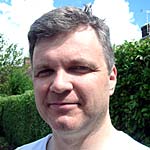17 February – Paul Cuss, St Laurence Catholic Church
Preparing for a Covid Purim
 For western Christians we are in the second week of Lent when we commemorate Jesus’ 40 days of temptation in the wilderness, and prepare ourselves to celebrate his sacrifice for our sins and his resurrection. Although the strict observances of the past are not common, many will give up something or engage in additional activities to help others. We will also reflect on our failings.
For western Christians we are in the second week of Lent when we commemorate Jesus’ 40 days of temptation in the wilderness, and prepare ourselves to celebrate his sacrifice for our sins and his resurrection. Although the strict observances of the past are not common, many will give up something or engage in additional activities to help others. We will also reflect on our failings.
For Jews this is the week of the festival of Purim, “the Jolliest Day of the Year”, when they celebrate deliverance from a planned massacre and are commanded to eat, drink and be merry. Purim is however preceded by the fast of (Queen) Esther commemorating her three day fast in preparation for risking her life by pleading to the Persian King to spare her people. Observant Jews will not eat or drink from first light to full dark and recite penitential prayers. In Autumn, Jews observe the “Holiest Day of the Year”, Yom Kippur, the Day of Cleansing, when they atone for the sins against God committed in the previous year and be cleansed of their guilt with a 25 hour-long fast. Prior to Yom Kippur one should atone for sins against another person, by seeking reconciliation with them, righting the wrongs one committed against them if possible.
For many in rich western societies the idea of self-denial and delaying pleasure appears to be an unwelcome concept. It is unsurprising therefore that the restrictions caused by the Covid-19 pandemic have caused many to complain. I see them, however, as an additional Lent or Yom Kippur giving us all the opportunity to reflect on and atone for the effects of our selfishness and greed on others, especially in poorer countries, and how our material desires have damaged the environment on which all life depends. To a greater or lesser extent most of us have coped with the deprivations of lockdown. So before we can celebrate a Covid Easter or Purim as a society, we need perhaps to be determined to reconcile ourselves with the whole of humanity and the environment —righting the wrongs we may have committed.
